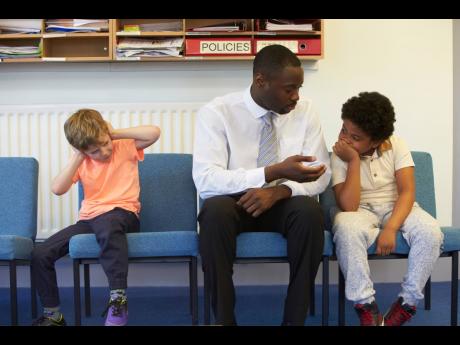Peter Espeut | Do we want discipline in schools?
I went to high school for seven years (up to sixth form) and gave back seven years in the classroom, mostly teaching science subjects.
Teaching adolescents, one of the things you quickly learn is their drive to be different, to stand out in the crowd. All the schools at which I taught had mandatory uniforms for students, and every day was a struggle over uniform breaches: the girls wanted to wear jewellery and overblouses, and the boys wanted to wear caps.
Learning is discipline; in fact, the subjects we teach and learn are called disciplines. If you want to analyse the chemical composition of a solid, or synthesise a particular compound, there are rules of procedure to be followed to obtain the right result. Varying the research method, or performing procedures in a different order, can confound the experiment and lead to a false result.
The same is true in social research; asking a question the wrong way, or wearing the wrong colour clothes while conducting an interview, can lead the respondent to answer other than truthfully, and your research findings or poll results can come out wrong.
As I spent my time in the classroom teaching science and mathematics, I also spent my time teaching discipline, including punctuality and deportment. I knew that the students would not do well at chemistry, physics or biology without good habits of personal discipline.
EXPRESS THEMSELVES
Adolescents want to express themselves, and good schools provide safe spaces for students to do exactly that. Music and dance, debating and drama, once thought to be extracurricular, today are correctly called co-curricular, for they are essential components of a good and rounded educational experience.
But so is discipline – conformity to school rules. The world of work has dress codes, operations manuals and canons of professional ethics. Learning the discipline of staying within school rules is important preparation for life.
Freedom does not mean being able to do anything one wishes; there are always limits to freedom, and concomitant responsibilities Responsibility means doing things one might not like to do, but doing them anyway because they are necessary. Doing the right things are not always the easiest things, but mature people know that they must be done, and they do them.
The school environment has to foster the right balance between self-expression and conformity; how well a school strikes this balance may be an important determinant for parents when they are choosing schools for their children. Some children (and some parents) may rebel against the requirement for school uniforms, citing the lack of school uniforms in the United States (US). But even in the US, schools that do not require uniforms have a standardised dress code of what clothing is appropriate for students to wear to school. Not having a school uniform does not mean that anything goes.
What might be appropriate for an adult to wear to a party may not be appropriate for a child to wear to school. What children can wear on weekends may not be appropriate for school.
ERODED THE MAIN FUNCTION
The recent case before the Supreme Court of Jamaica revolved around whether schools have the right to make enforceable rules about dress and grooming, or whether the constitutional rights around freedom of expression mean that students can wear what they wish to school, including clothing, jewellery, make-up, hair colour and hairstyle. In my view, a judgment against the school would have eroded a main function of schools: the ability to teach students the hard lesson that they cannot always do what they feel to do to ‘express themselves’.
This modern view that people – including children – must be free to do whatever they feel to do, is the very opposite of discipline. In fact, it is libertarianism, one of the biggest threats to the stability of modern society.
Indiscipline in eating, drinking, and sexual matters leads to obesity, drunkenness, and unwanted children. Indiscipline at the workplace can lead to nepotism, cronyism, and other forms of corruption.
If we want a disciplined society, then we must allow our schools to inculcate discipline into our children. Must the opposite – poor examination performance, force-ripe teen mothers, and a proliferation of criminal gangs – be the future of our children?
Peter Espeut is an environmentalist and development scientist. Email feedback to columns@gleanerjm.com.

